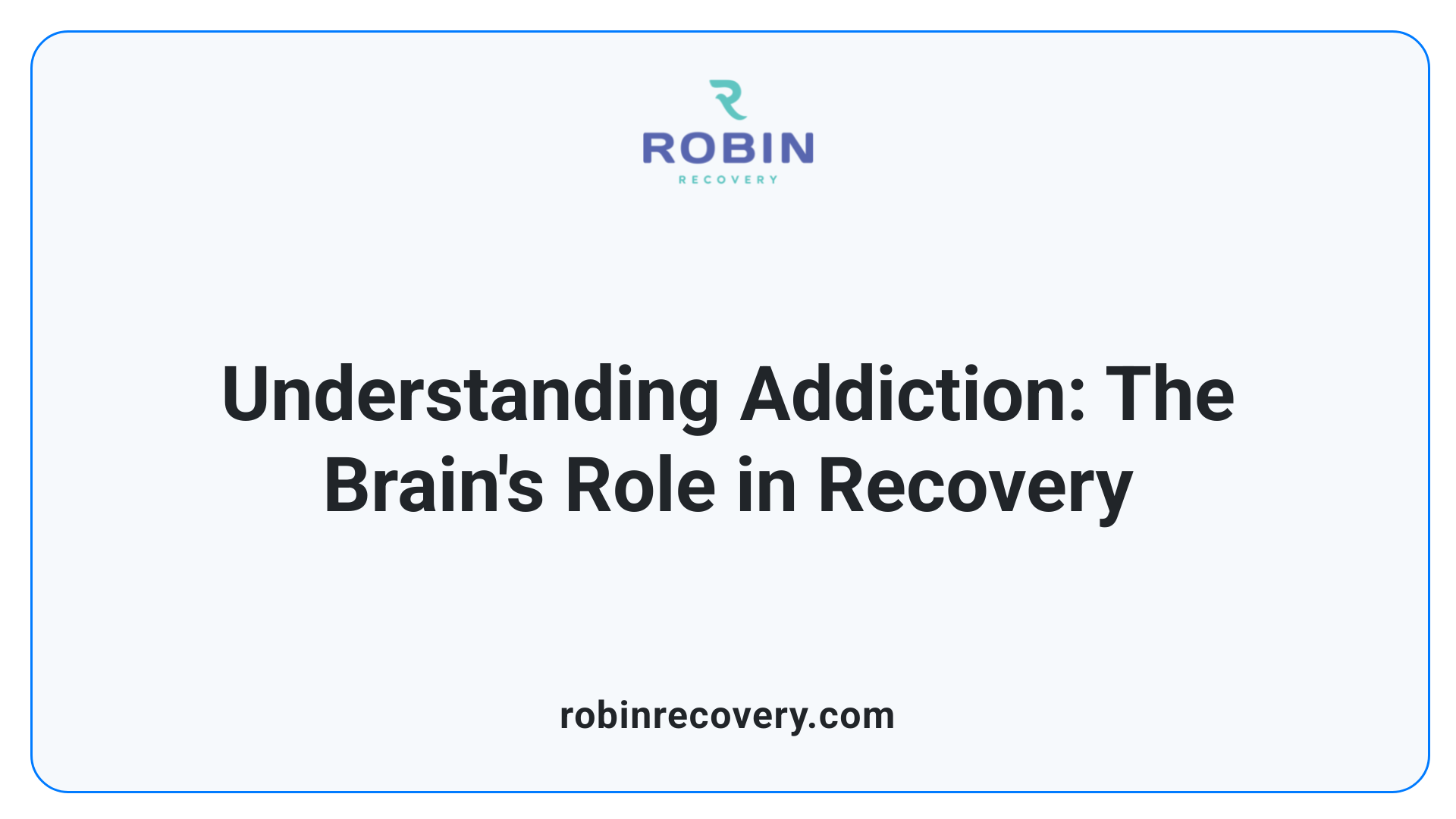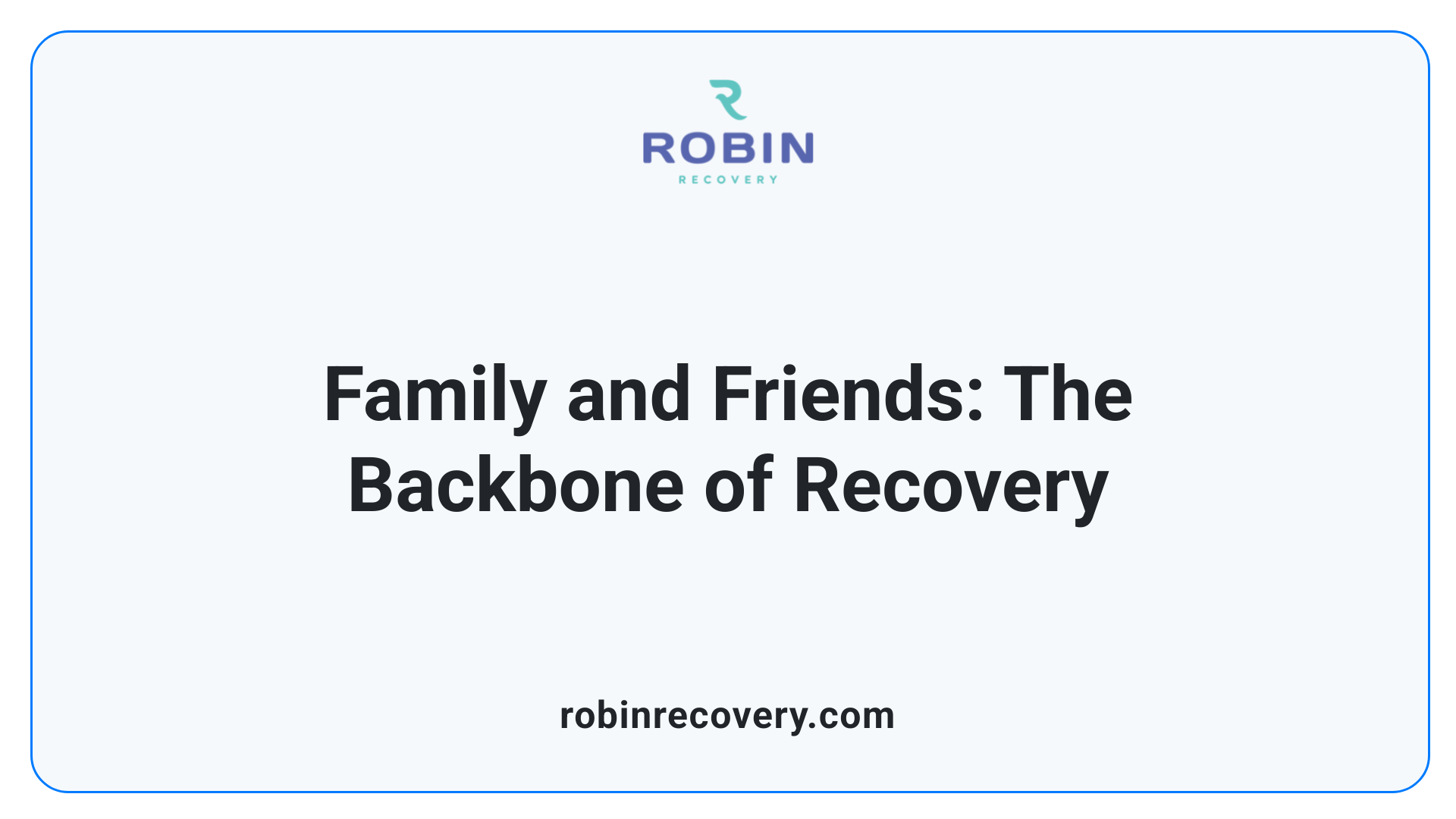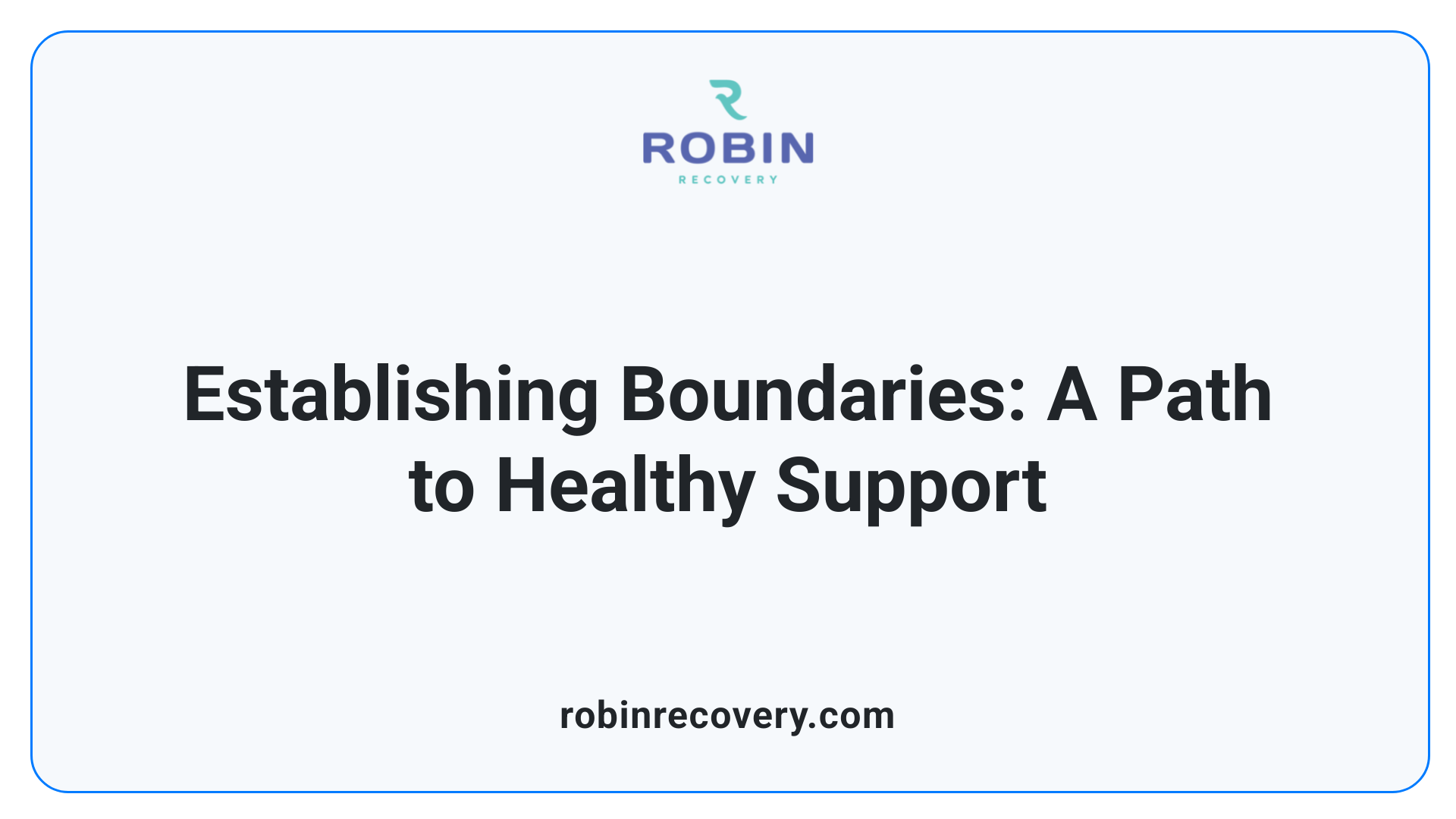How to Support a Loved One in Addiction Recovery

Understanding the Journey of Addiction Recovery
Addiction recovery is a challenging and deeply personal journey, not only for those struggling but also for their families and friends. It often demands an unwavering support system that understands the intricate dynamics of addiction. This article offers a pragmatic exploration of how best to support loved ones as they navigate these waters of healing and sobriety. By understanding factors like the unique pathways of recovery and the emotional toll addiction takes, we can become more effective supporters.
Educating Yourself About Addiction

The Nature of Addiction as a Brain Disease
Addiction is often misunderstood; it's a complex disease that alters brain chemistry and function rather than a mere moral failing. Recognizing that addiction rewires the brain's circuits and can lead to dependency is crucial for understanding the struggle of your loved one. This viewpoint fosters empathy and encourages a supportive approach rather than one based on frustration or stigma.
The Importance of Understanding Addiction Before Offering Support
Supporting someone dealing with addiction starts with education. Learn about the emotional pain, trauma, and social factors that contribute to substance use. Gaining insight into these elements allows you to empathize better with their experiences.
Additionally, practice offering love and encouragement consistently since many individuals in addiction may feel isolated. When advocating for professional help, do so with a gentle approach that avoids shame.
How Can I Support a Loved One Struggling with Addiction?
To provide meaningful support, participate in support groups alongside your loved one, which can reinforce their recovery efforts and show your commitment. Importantly, prioritize your personal health to maintain the strength needed for ongoing support. Remember, integrating addiction treatment into overall health care can significantly enhance recovery outcomes.
By being educated and supportive, you empower your loved one to navigate this challenging journey.
Effective Strategies for Supporting Recovery

What strategies can aid in supporting a loved one in their recovery process?
Supporting a loved one in their recovery involves several thoughtful strategies that emphasize positivity and responsibility. First, consistently reinforcing your belief in their capacity to recover is crucial. Celebrate even the smallest milestones to boost their morale.
Setting healthy boundaries is essential for protecting your emotional and physical well-being. This ensures a supportive atmosphere that prevents co-dependency. With boundaries in place, it’s vital to approach your loved one with empathy and compassion, fostering an environment where they feel safe to share their feelings.
Communication plays a pivotal role in this journey. Employing effective communication techniques, such as active listening and maintaining a non-judgmental tone, can create a space where your loved one feels heard and respected.
Encouraging personal responsibility is another significant aspect. Allowing them to experience the natural consequences of their actions can sometimes motivate change. When they realize the costs of substance use outweigh the benefits, it can prompt them to reevaluate their choices. Additionally, don’t hesitate to connect with resources like SAMHSA’s National Helpline for further guidance and support.
Encouraging personal responsibility and positive reinforcement
Engaging your loved one in discussions about their recovery, while emphasizing their agency, fosters a sense of control over their journey. Instead of rescuing them from challenges, gently guide them to recognize that overcoming obstacles is part of the recovery process. This encourages independence and helps them build their confidence.
Moreover, creating a stable and positive home environment can significantly reduce stressors that might trigger relapse. Celebrating successes, regardless of their size, can enhance motivation and reinforce positive behavior. Remember, every step, no matter how small, can be a vital part of their recovery journey.
Role of Family and Friends in Recovery

How Can Family and Friends Positively Impact the Recovery Process?
Family and friends play a crucial role in the recovery journey of an individual battling addiction. Their involvement can significantly boost the chances of maintaining sobriety by offering consistent emotional support and motivation. This network can create a sense of belonging, helping to alleviate feelings of isolation that often accompany addiction.
Emotional support can manifest in various forms, such as listening without judgment, vocalizing encouragement, and reinforcing positive behaviors. Simple actions like celebrating milestones, no matter how small, can greatly enhance an individual’s self-esteem and drive. When loved ones recognize and applaud progress, it encourages persistence in recovery efforts.
In addition to emotional support, engaging in positive activities together is vital. Here are some effective ways that family and friends can support their loved ones:
- Participate in Healthy Activities: Engaging in exercise, art classes, or outdoor adventures can foster a healthier lifestyle and provide effective distractions from cravings.
- Attend Support Groups Together: Joining support meetings like Al-Anon or group therapy can encourage open dialogue and a shared understanding of recovery challenges.
- Practice Self-Care: While supporting a loved one, family and friends should also prioritize their well-being to sustain their ability to provide help.
Overall, the support from family and friends helps reinforce a strong commitment to recovery, making the journey a collaborative effort.
Understanding Enabling vs. Helping

Differentiating Helping Behaviors from Enabling Behaviors
Understanding the distinction between helping and enabling is crucial for supporting a loved one in recovery. Helping involves promoting accountability, encouraging personal responsibility, and offering emotional support in a way that fosters independence. In contrast, enabling allows destructive behaviors to continue by shielding the loved one from the consequences of their actions, such as making excuses or providing financial support without constraints.
Practical Steps to Avoid Enabling
To effectively support a loved one while avoiding enabling behaviors, consider these practical steps:
- Set Clear Boundaries: Establishing what you are willing to do, and what you will not tolerate, can encourage responsibility.
- Encourage Professional Help: Suggest therapy or support groups, empowering them to seek change.
- Avoid Making Excuses: Resist the urge to justify their behavior, as this can reinforce their dependencies.
- Let Them Face Consequences: Allowing them to experience setbacks can facilitate learning and personal growth.
- Prioritize Self-Care: Your well-being is essential; ensure you are healthy to provide effective support.
Emotional Aspects and Boundaries in Recovery

Importance of Setting Boundaries
Setting healthy boundaries is essential in the recovery process. This helps prevent enabling behaviors that can hinder a loved one’s journey toward sobriety. By establishing clear limits, family members can protect their own emotional health while fostering accountability in the recovering individual. Boundaries may include refraining from giving financial support that facilitates substance use or avoiding participation in enabling behaviors.
Communicating Effectively with Empathy
Open and respectful communication fosters a supportive environment for recovery. Using non-judgmental language is crucial; refer to individuals as ‘in recovery’ rather than ‘addicts’ to promote their identity beyond substance use. Active listening shows empathy and understanding, allowing individuals to express their feelings and challenges. Encouraging expressions of concern without blame can strengthen relationships and support recovery efforts.
Aspect Description Importance Setting Boundaries Establishing limits on emotional and financial support Protects mental well-being and fosters accountability Effective Communication Engaging with empathy and non-judgmental language Strengthens support networks
Self-Care for Supporters
Importance of Self-Care for Those Supporting Someone in Recovery
Supporting a loved one through addiction recovery can be mentally and physically exhausting. For caregivers, prioritizing self-care is crucial to maintain their well-being. Neglecting personal health can lead to burnout, making it difficult to provide effective support. Regularly taking time for oneself can strengthen resilience and improve overall ability to assist a recovering loved one.
Engaging in Support Groups for Caregivers
Joining support groups specifically for caregivers, such as Al-Anon or Nar-Anon, can offer invaluable help. These groups provide a platform for expressing feelings, sharing experiences, and gaining insight from others facing similar challenges. Engaging in community support fosters a sense of connection and understanding, essential for managing the toll that caring for someone with addiction can take on one’s mental health.
Empowering Recovery Through Support
Supporting a loved one through addiction recovery is a multifaceted process that requires understanding, patience, and empathy. By educating ourselves about the true nature of addiction, employing effective communication and boundary-setting skills, and maintaining our own wellness, we can offer impactful support. This journey is not about fixing others, but about empowering them to find and hold onto recovery. As allies, our role is to reinforce the strengths and successes of our loved ones while ensuring we do not lose sight of our own health and well-being.
References
- Understanding & Supporting a Loved One's Recovery
- 10 Loving Ways to Support Someone in Addiction Recovery
- Intervention: Help a loved one overcome addiction - Mayo Clinic
- Support Your Loved One | Families for Addiction Recovery
- Supporting a Loved One in Recovery: 5 Dos and Don'ts
- 4 Myths About Supporting a Family Member in Addiction Recovery
- 5 Tips on How to Help Someone Struggling with Addiction
- Supporting someone through recovery - Alcohol and Drug Foundation
- 7 tips for supporting someone recovering from addiction
